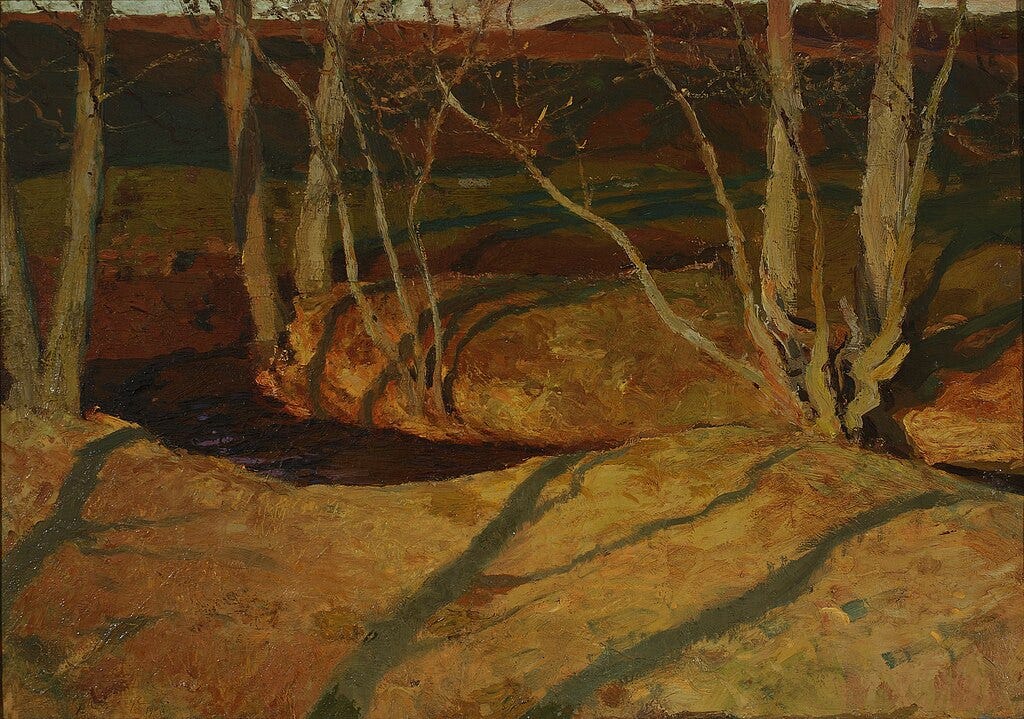
Autumn sick and adored
You will die when the storm blows through the rose garden
When snow has fallen
In the orchards
Poor autumn
You are dying in whiteness and in riches
Of snow and of ripeness
High in the sky
Hover the sparrowhawks
Over the tiny ninny nixies with green locks1
Who have never loved a thing
At the edges of the field far off
The stags were bellowing2
And how I love O season how I love your hubbub
The fruits that fall ungathered underneath
The wind and weeping woods that sob
All their tears in autumn leaf by leaf
The leaves
Trampled down
A train
Rolls along
So life
Runs on
Sur les nixes nicettes aux cheveux verts et naines.
This line was a job to wade through. The nixies are from German folklore. They are river sirens who lure people to death by drowning. Nicettes, which describes these nixies, is a diminutive of an archaic word, nice, meaning simple or naive. This is incidentally the origin of the English word nice, which did not start life as a compliment. (It meant “ignorant.”) Cheveux verts is easy, of course: green hair. Finally, I had interpreted naines as “dwarves,” another creature, but Luca, who outranks me on this, says it reads as one more modifier of nixes, since it is also plural feminine. So this stanza contains wee river merpeople, not merpeople plus some girl dwarves. (See the introduction to this poem for a deeper dive, so to speak, on nixies.)
Bramer is a verb in French that refers specifically to the sustained loud noise that rutting stags make. As a person alive at just the right moment for questions like these, when I set out to translate this word, I could refer to one of the surprisingly numerous videos on YouTube of the exact sound, a sort of urgent, angry moo.



